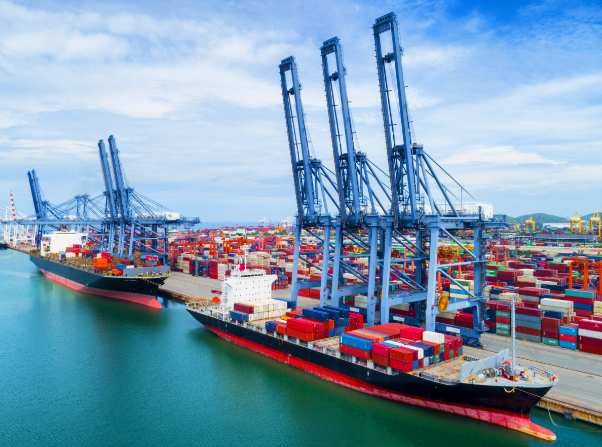Last week, the UK government and European Commission announced and implemented new export regulations regarding personal protective equipment, writes Rachel Stockton, director of special projects at the Institute of Export & International Trade.
These new, temporary rules have been introduced in response to the ever-increasing demand for this essential, life-saving equipment.
In these trying and uncertain times, classifying your PPE products correctly is a responsibility that cannot be taken lightly. It’s vital to limit errors and financial burdens, not only for business reasons, but the reputation of your company with your clients, Customs and HMRC.
The new rules explained
Media headlines have focused on the shortages of PPE at hospitals and other medical centres. Although numerous companies have increased manufacturing or switched to producing this vital equipment, the new rules aim to ensure it is kept within the UK, EU, EFTA (European Free Trade Association) member states and certain dependent territories.
In essence, the new rules mean export of PPE kit from these countries will be refused - unless the exporter can provide a suitable and valid reason as to why they need to export the goods.
The new regulation Commission Implementing Regulation (EU) 2020/402 came into effect on the 15 March 2020 and has been given an initial end date of the 26 April 2020.
List of goods
The equipment covered includes:
- Face shields
- Protective visors and spectacles
- Mouth-nose protection equipment
- Protective gloves
- Protective garments
If you do wish to export any of these products, you now must complete application and notification forms and email them to ppeexports@trade.gov.uk
Export criteria
Criteria on which the export would be considered includes:
- Exporting the goods would not prove a threat to the needs of the UK and EU
- They are to support the work of the World Health Organisation’s (WHO) Global Outbreak Alert and Response Network (GOARN)
- They are for use by EU member states involved in foreign operations
- For use by delegations of the EU member states abroad.
Commodity codes
When completing the application form, one of the key requirements is the commodity code.
The commodity code determines what the product is, what it does, whether you require an import or export licence, how much duty you pay and any other rules and regulation that may apply to that code.
One of the products listed above is mouth-nose equipment, frequently referred to as face masks. Annex 1 of the EU regulation lists two Common Nomenclature (CN) codes for use under this heading:
6307 90 98 – Textiles and textile articles; Other made-up textile articles; Other
9020 00 00 – Medical or surgical instruments and apparatus; Other
With staff having to be placed on furlough and unable to perform their usual duties, there is a possibility that someone who does not understand the importance of a commodity code may use the incorrect code.
Should you search online the commodity code for face mask, returned suggestions (other than above) include:
3304 90 90 – Products of the chemical or allied industries; Prepared waxes; Other
9018 90 84 – Medical or surgical instruments and apparatus; Other instruments and Appliances; Other
9019 20 00 – Medical or surgical instruments and apparatus; Ozone therapy, aerosol therapy, artificial respiration or other therapeutic respiration apparatus
9505 90 00 – Miscellaneous manufactured articles; Festival, carnival or other entertainment articles including conjuring tricks and novelty jokes; Other
Incorrect coding: what happens next
So, what are the ramifications of classifying the goods incorrectly?
- If you declare the goods as either 6307 90 98 or 9020 00 00 and they should have been declared under 9505 90 00, you will now be advised you need to obtain an export licence under the PPE regulations.
Having realised the mistake made, when you contact customs to advise them of your error, you will be required to prove the goods have been mis-declared and provide evidence of what the goods are.
- You may require the PPE export licence but fail to obtain it due to misinformation.
- Incorrect information could lead to delays. Having to provide evidence takes time and relies on people being available both in your business and at the customs office to deal with additional paperwork.
You may miss the vessel you were originally booked on because the goods have not been given Permission to Progress (P2P).
- Extra costs may be incurred due to goods being held at the docks/airport. Booked vessels may depart before your goods are placed onboard resulting in delays in delivering the product to the customer, who in turn may penalise you with late delivery charges. Customs may charge you non-compliance penalties.
- If you are importing, mis-declaration can result in too much duty being paid, which in turn leads to more paperwork having to be completed and additional costs being incurred to reclaim the overpayment.
Deliberately mis-declaring goods
If goods are knowingly mis-declared, the following can result:
- Financial penalties
- Criminal conviction, which could consist of a fine, a prison sentence up to 10 years of in some cases, both
- The goods being confiscated
- ALL OF THE ABOVE
This article has been written to advise you of the new PPE export regulations and highlight the importance of ensuring you classify not only PPE products, but all products correctly. We hope you have found it useful.
Should you require any help regarding PPE export, product classification, or you have any other export or import questions, please contact us, we are here to help.
* * * * * * * *
About the author
Rachel Stockton spent more than 20 years working for a major FTSE 250 company, where she developed the firm’s UK and International Customs and Compliance department. Later, she consolidated the Import/Export and Customs/VAT functions into one unit and was promoted to lead it.
She then set up her own company offering a range of services including international trade




